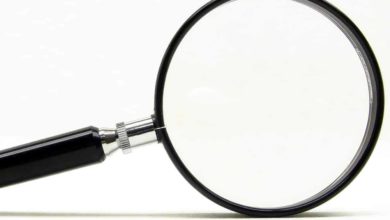If you didn’t get into medical school on the first try, don’t be discouraged! You’re by no means alone and it isn’t the end of the road.
The reality is that only about 40% of students who apply to medical school will matriculate. For the other 60%, they have to decide whether they want to reapply in the next application cycle, or pursue a different career path.
Reapplying to medical school isn’t a bad thing! Follow these tips to decide whether or not reapplying is right for you, and learn how to improve your application to boost your chances of success in the next cycle.
First, Reapplying Isn’t a Bad Thing
A lot of pre-med students assume that getting rejected means they’re simply not cut out for a career in medicine. Others that received interview invitations may feel too embarrassed to reapply to the same schools, assuming they messed up in front of the admissions committee.
But remember, getting into medical school is tough. It’s an extremely competitive landscape and adcoms have to review thousands of applications. Some years there is a more competitive applicant pool, and other years there may be an increase in applicants overall. There could be any number of reasons you didn’t get in the first year – some you can control, and others you can’t.
The most important thing to keep in mind when reapplying to medical school is that your goal is to improve upon your application (and interview skills if you made it that far). You can’t do the same thing and expect different results. If your application appears the same as last year, why would admissions committees take notice this year? Do everything you can to ensure your application is as strong as possible by reevaluating and finding ways to improve it.
If at first you don’t succeed, try again. But, try again strategically.
Calculate Your Chances of Getting Into Med School
Next, Do an Honesty Check With Yourself
If you’ve got the numbers, experience, and extracurriculars and are truly a competitive applicant, then you should confidently reapply to medical school.
But if you didn’t get any traction at all, even from your safety or “undershoot” schools, you need to take an objective look at your application and qualifications to see if medical school is really the right path for you – especially if you’ve reapplied multiple times.
If you’re passionate about a career in medicine, remember that medical school is just one path that you can take. There are countless other careers that don’t require medical school where you can still work with patients and make a difference.
FAQs About Reapplying to Medical School
While every student’s situation is unique, here are some of the most frequent questions we get about reapplying to medical school:
What went wrong?
Getting rejected is disappointing. But the best way to boost your chances in the next application cycle is to figure out what went wrong the first time. The first step is to identify what point in the application process you were rejected.
No secondary essay requests – If you didn’t receive any secondaries, then your primary application wasn’t strong enough in the first place.
No interview invitations – If you didn’t receive any interview invitations, your secondary essays likely fell flat. Secondaries are tough as you really should aim to complete them within two weeks, and if you received secondaries from multiple schools, consider your summer booked solid with writing. The best way to better prepare yourself for secondaries in the next application cycle is to use a secondary essay prompt database and familiarize yourself with what schools ask. Then, pre-write secondaries for your target schools. Yes, this is a pain, but it will save you a lot of future stress.
No acceptance letters – If you made it through the interview process and didn’t get any acceptances, your interview skills may have been lacking. Or, schools may have had a lot of really great applicants and you were just edged out. It’s hard to know exactly what happened at this point. If you’re comfortable doing so, you can reach out to schools where you interviewed and ask for feedback. While not all schools are receptive, if you do receive any feedback you can use it to approve your application or interview skills the next time around.
When should I reapply?
While you can reapply to medical school in the very next application cycle, that’s not always the best option. Take some time to carefully evaluate your application and look for gaps and areas for improvement. You may find that you need to take time to gain more experience through work, volunteering, or earning a post-baccalaureate certificate. Or, you may need to retake the MCAT to raise your score enough to be a competitive applicant at more target schools.
What should I change on my application?
If you used the AMCAS application, the good news is that a lot of your information will remain the same. There are a few sections you’ll need to revisit:
Work & Activities – Update this section if you used the time between applying to earn any additional work, personal, or professional experience that is applicable to your application.
Letters of Evaluation – While you may reuse letters of recommendation, AMCAS will not retain letters from previous application cycles so you will need to resubmit them. Also, if you plan to reuse a letter, you should ask the letter writer to submit it again with a new date and add any additional information to the original letter. If you worked with a new mentor in the past year, you may want to request new letters.
School List – You can apply to the same or similar schools, but reevaluate them critically and be completely honest with yourself about your level of competitiveness.
Personal Statement – Reapplicants are expected to submit new personal statements. There is no problem using the same theme, personal attributes, and reasons for wanting to become a physician, but the stories and anecdotes need to be changed, and you should aim to write a stronger essay than the first time.
How many times can I reapply to medical school?
This is specific to each school. Some schools only allow students to apply two times whereas others have no limit. However, this goes back to doing an honesty check with yourself. Instead of thinking in terms of how many times you can apply, think about how many times you should apply.
Do medical schools know I’m reapplying?
If you apply to the same schools/program, yes, they know you’re a reapplicant. However, unless they saved your first application to their database, they will not be able to compare your applications side by side. For new schools you’re applying to, they will not know from AMCAS that you are a reapplicant, but some schools ask this question on their secondary applications.
Can I reapply to the same schools?
Yes, but as mentioned earlier you should carefully reevaluate your school list. Your school list could be the very reason you didn’t get into medical school the first time. Remember, a good school list has a balance of target, reach, and undershoot schools. Even if your stats are stellar if you only apply to top programs, your chances are slimmer simply because those schools are so competitive. If you apply to all undershoot schools, schools may see you as overqualified and not waste an interview spot on you when you should clearly be in a higher tier program.
Get Help Creating Your School List
How to Improve Your Application when Reapplying to Medical School
First things first, improve the things that you can control – like your MCAT score and GPA. Next, enhance your extracurricular activities. Medical schools are primarily looking for hours and experience in five areas: volunteering/community service, research, leadership, shadowing, and patient care.
If you made it through the interview process, also consider professional interview preparation services to help you improve your facetime with adcoms. One-on-one interview prep with physician advisors who have served on admissions committees provides invaluable feedback and can help boost your confidence.
Finally, apply early. We always encourage students to submit their application as early as possible in the cycle. If you’ve been working on your personal statement and pre-writing secondaries in the months leading up to the AMCAS opening, you can alleviate much of the stress that comes with reapplying to medical school.
MedSchoolCoach Can Boost Your Chances of Being a Successful Reapplicant
More than half of all students that apply to medical school don’t make it the first time. That’s ok – don’t let rejection get you down if you’re passionate about a career in medicine! Sometimes all it takes is a fresh set of eyes on your application and school list to boost your chances of being a successful reapplicant.
MedSchoolCoach has helped thousands of students successfully reapply to medical school. Our physician advisors have been through the process personally, they’ve served on admissions committees, and they know exactly what it takes to help you become a strong reapplicant.
Learn more about our application advising, interview preparation, personal statement editing, and MCAT tutoring services. We invite you to schedule a free consultation to learn more and see how we can help you achieve your medical school dreams.



